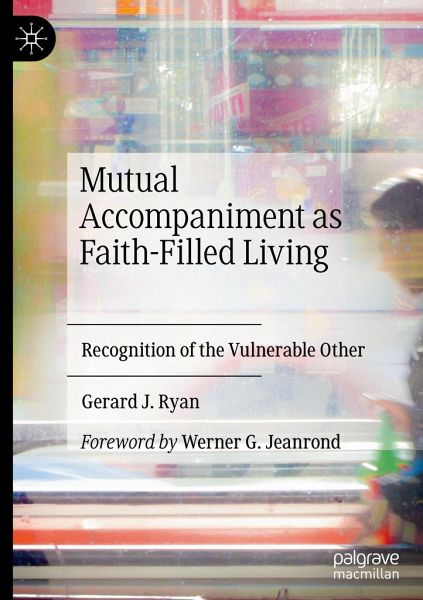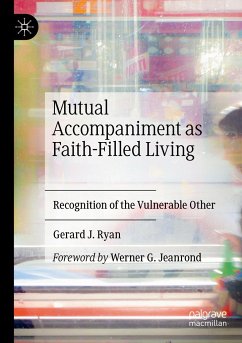
Mutual Accompaniment as Faith-Filled Living
Recognition of the Vulnerable Other
Versandkostenfrei!
Versandfertig in 6-10 Tagen
106,99 €
inkl. MwSt.
Weitere Ausgaben:

PAYBACK Punkte
53 °P sammeln!
In this book, Gerard J. Ryan examines the interrelationship between recognition theory and theology with their respective concerns for what it means to be a human. He advocates a mutual accompaniment that reformulates recognition theory within a practical and public theology. Ryan develops this interpersonal recognition through the accompaniment of vulnerable people, particularly persons with disabilities and those who suffer from mental illness. He explores three contexts that support this mutual accompaniment and the labour of recognition. These are narrativity, the stories we live out of; v...
In this book, Gerard J. Ryan examines the interrelationship between recognition theory and theology with their respective concerns for what it means to be a human. He advocates a mutual accompaniment that reformulates recognition theory within a practical and public theology. Ryan develops this interpersonal recognition through the accompaniment of vulnerable people, particularly persons with disabilities and those who suffer from mental illness. He explores three contexts that support this mutual accompaniment and the labour of recognition. These are narrativity, the stories we live out of; vulnerability, the basic human condition common to all; and participation, the inter-relationship of humanity.














